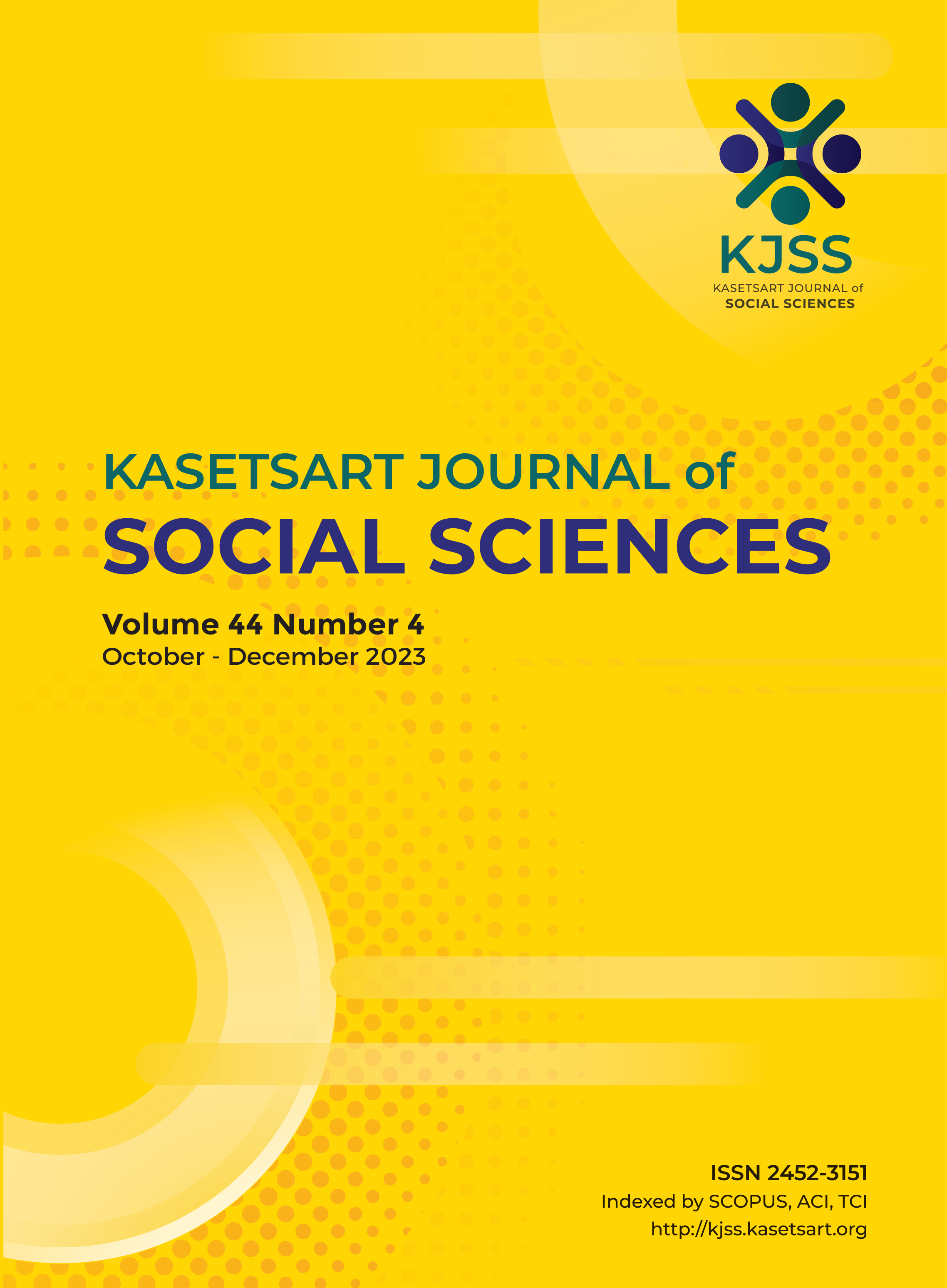Development and outcome of workplace spirituality: An empirical study in Thailand
Keywords:
authentic leadership, psychological capital, spiritual health, work values, workplace spiritualityAbstract
The main objectives of this research are to examine effects of workplace spirituality development program and cross-lagged causal relationships between workplace spirituality and the selected variables, including psychological capital, spiritual health, authentic leadership, work values, job satisfaction, and psychological well-being of executives in private organizations. Data were collected from 71 executives in one private organization in Thailand selected via purposive sampling. T-test for dependent samples was performed to compare pre- and post-test means of the study variables. Also, path analysis was performed to examine the cross-lagged causal relationships. Results showed that post-test means of workplace spirituality, psychological capital, spiritual health, authentic leadership, work values, job satisfaction, and psychological well-being were higher than the pre-test means (p < .05). In addition, workplace spirituality was found to have significant direct and indirect effects on all dependent variables (i.e., authentic leadership, work values, job satisfaction, and psychological well-being).
Downloads
Published
How to Cite
Issue
Section
License

This work is licensed under a Creative Commons Attribution-NonCommercial-NoDerivatives 4.0 International License.
This is an open access article under the CC BY-NC-ND license http://creativecommons.org/licenses/by-nc-nd/4.0/










